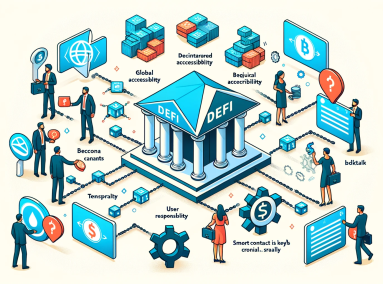IT Audit Understanding the Complexities of Cryptocurrency Auditing
23-11-26
본문
Cryptocurrency auditing is an increasingly important field in the world of finance and technology. As cryptocurrencies continue to gain prominence, the need for effective auditing practices becomes paramount, especially from an IT auditor's perspective. This detailed guide delves into the complexities of cryptocurrency auditing, exploring key aspects and best practices for ensuring the integrity and legality of digital asset transactions.
1. The Evolving Landscape of Cryptocurrency Auditing
Cryptocurrencies, being decentralized digital assets, operate outside the traditional financial systems. This decentralization, while offering numerous benefits, also poses unique challenges for auditing. Unlike conventional financial systems, cryptocurrencies are not regulated by central authorities, making the auditing process more complex and necessitating specialized knowledge and tools.
Decentralization and Its Implications: Understanding the decentralized nature of cryptocurrencies is crucial for auditors. This includes grasping blockchain technology, the underlying framework of cryptocurrencies.
Adapting to a New Financial Ecosystem: Auditors must adapt their methodologies to suit the digital nature of cryptocurrencies, which differ significantly from traditional financial assets.
2. Identifying and Mitigating Risks in Cryptocurrency Audits
Given the anonymity and complexity of cryptocurrency transactions, they are susceptible to illicit activities like money laundering and fraud. Auditors must be adept at identifying these risks.
Money Laundering and Fraudulent Activities: Developing strategies to detect and prevent these activities is a critical component of cryptocurrency auditing.
Implementing Robust KYC Procedures: For businesses dealing in cryptocurrencies, implementing effective Know Your Customer (KYC) procedures is essential to mitigate risks.
3. Special Considerations in Cryptocurrency Auditing
Auditing cryptocurrency transactions requires a different approach compared to traditional assets due to their unique characteristics.
Understanding Cryptocurrency Valuation: The volatile nature of cryptocurrencies poses challenges in accurately valuing these assets.
Transaction Traceability and Transparency: Utilizing the transparent nature of blockchain to trace and verify transactions is a key aspect of cryptocurrency auditing.
4. Technological Tools for Effective Cryptocurrency Auditing
Specialized software and tools are essential for auditors to accurately analyze and verify cryptocurrency transactions.
Blockchain Analysis Software: These tools help auditors in identifying patterns, trends, and potential red flags in cryptocurrency transactions.
Staying Ahead with Emerging Technologies: Auditors must keep abreast of the latest technological advancements to effectively audit digital assets.
5. The Role of Expertise in Cryptocurrency Auditing
Engaging auditors with specialized knowledge in cryptocurrencies is crucial for a thorough and effective audit.
Expertise in Regulatory Standards and Technical Aspects: Professionals with a deep understanding of both the regulatory environment and the technical nuances of cryptocurrencies are invaluable in this field.
Continuous Learning and Adaptation: The rapidly evolving nature of cryptocurrencies demands continuous learning and adaptation from auditors.
Conclusion: Navigating the Future of Cryptocurrency Auditing
As the cryptocurrency market continues to grow and evolve, so too must the practices and approaches to auditing these digital assets. Recognizing the inherent risks and leveraging specialized knowledge and tools are key to conducting effective cryptocurrency audits. This proactive approach is vital in safeguarding the integrity and legality of transactions in the dynamic world of digital currencies.



